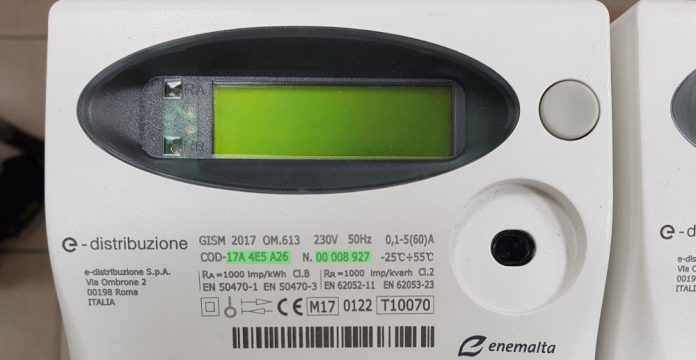The Auditor General’s report ‘Smart and RF meters’ contribution to more accurate and timely utilities billing’ has confirmed once again that energy bills are being calculated in the same way they have always been calculated. In fact, the only change since 2013 was the 25% reduction in tariffs.
The existing Legal Notice regulating the billing methodology came into force in 2009. In his conclusions, the Auditor General was clear when stating; “Practices adopted by the utilities’ corporations and ARMS have always been based on a pro rata basis” and that “all workings were found to be correct”.
Whilst exercising caution due to the divergent interpretations presented to Court, when commenting on the existing calculation methodology, the Auditor General said that any changes should be studied thoroughly and responsibly.
According to the Auditor General’s report, this thorough study is essential because there exists the risk that an ill studied change results in higher bills for certain consumers whilst ending up rewarding those who consume most. In this regard, the Auditor General highlighted that this would go against the polluter pays principle, enshrined in the Treaty on the functioning of the European Union. Therefore, it would go against the EU Treaty and the principles stemming from it.
In his report, the Auditor General says that with the annualisation billing methodology, heavy consumers would benefit more whilst the more responsible consumers would be affected negatively.
This reflects what the Ministry for Energy has already stated, namely that the rushed statements by the Opposition would result in higher bills for thousands of clients and endanger the eco-reduction benefit.
The Auditor General also notes the declaration in Budget 2022, in which the government committed to addressing the issue. It was stated clearly that any change should be “fair for everyone.”
In his conclusions, the Auditor General was clear that bills calculated according to the current methodology are generally correct.
The Auditor General wrote that; “more in-depth studies are required as quasi favouring the heaviest peak consumers would deviate from the fundamental polluter pays principle.”
The need for well-thought-out solutions which are not based on populism are reflected in the position already adopted by this government when, in the Budget for next year, it declared that a new system will be announced. This system would be fair without negatively impacting any clients. This is contrary to what the Opposition has been stating, with its rushed proposal which would have increased the bills of thousands of clients.
Whilst the Opposition does not offer studied solutions, during an international crisis the Maltese government continues to ensure the lowest bills for consumers. At the same time, consumers in member states across the European Union registered considerable increases. Malta today has the lowest energy bills in the Euro Zone because this government decided to side with the Maltese and Gozitan consumers. This government chose to support consumers and not pass on to them the burden of international pressures whilst the world is still emerging from a pandemic.










